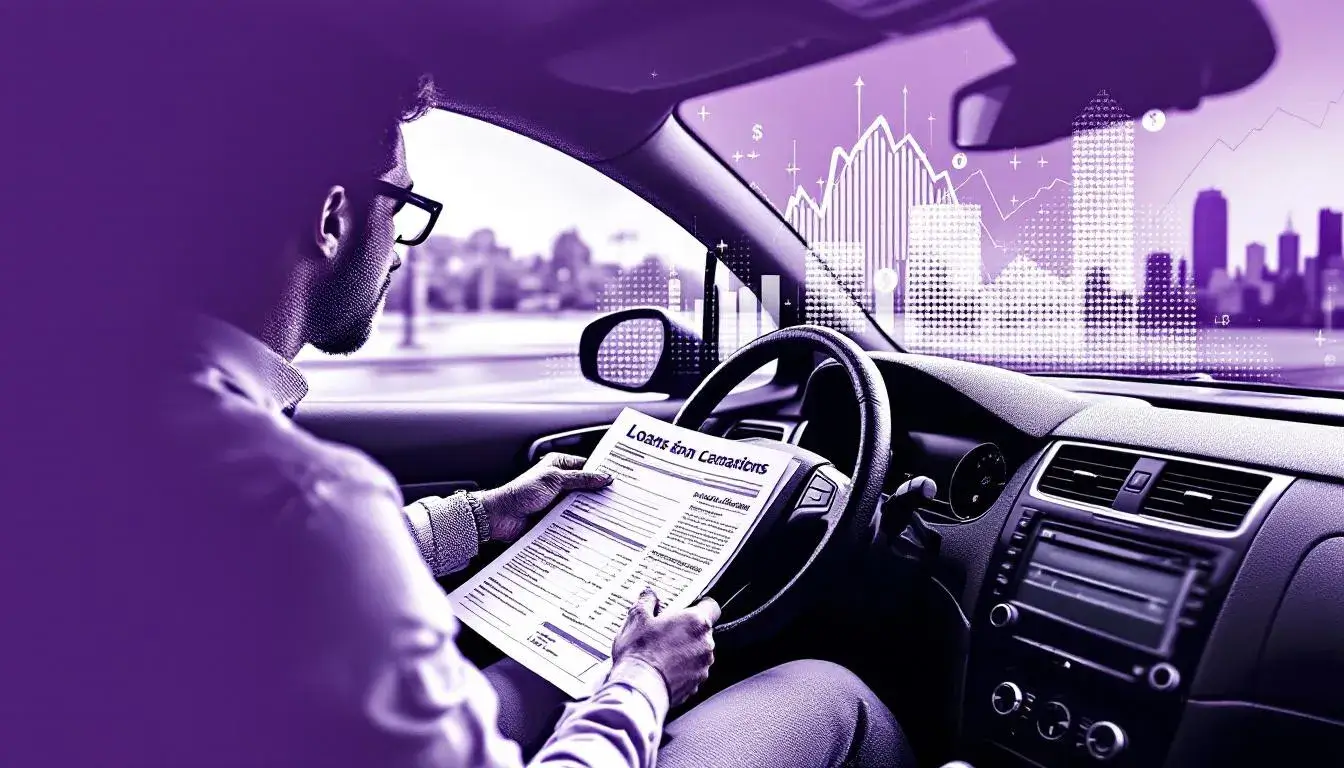
Using Your Car to Secure a Loan: What to Know

Using Your Car as Loan Security: An In-Depth Guide
Borrowing can be challenging, especially if you need funds quickly or have a less-than-perfect credit history. One option that often comes up is a loan secured against your car. In the UK, these are commonly known as logbook loans or car-backed loans. But what do these products entail, and are they right for you?
Car-backed loans allow you to unlock the value in your vehicle without selling it outright. The lender uses your car as collateral, granting you access to cash while you continue to drive the vehicle. However, this convenience comes with specific terms, costs, and risks that warrant close attention.
With the cost-of-living pressures many households face, understanding your options is crucial. This article explains how car-backed loans work, who might benefit, and the practicalities involved, so you can make informed financial decisions.
Who This Is For
A car-backed loan may suit you if:
You own a vehicle (usually outright or with significant equity)
You need to access funds quickly
Traditional personal loans or credit cards are unavailable or unsuitable
You prefer to keep driving your car while borrowing against it
However, these loans are not ideal for everyone. If you are struggling with debt, have an unreliable income, or your vehicle is essential and irreplaceable, extra caution is needed. Individuals with strong credit may also find cheaper alternatives.
Key Concepts and Terminology
Logbook Loan: A loan secured against your car. The lender temporarily holds the vehicle’s V5C logbook (proof of ownership).
Collateral: The car acts as security. Non-repayment may lead to repossession.
APR (Annual Percentage Rate): The annual cost of the loan, including interest and fees.
Equity: The car’s value, minus any outstanding finance.
Understanding these terms helps clarify how these loans differ from unsecured borrowing or traditional car finance.
Your Loan Options
There are several ways to borrow with your car:
Logbook Loans: The lender holds the car’s logbook until you repay. You keep using the vehicle.
Car Title Loans: Similar to logbook loans, more common in the US but sometimes used as a term in the UK.
Personal Loans (Secured): Some lenders may offer lower rates if you secure the loan against your car.
Hire Purchase/PCP Settlements: If you have equity after settling existing finance, some lenders may allow a top-up loan.
Each option varies in cost, flexibility, and risk. It’s vital to compare features and terms before proceeding.
Cost, Impact, Returns, and Risks
Car-backed loans can be expensive. Typical APRs range from 100% to over 400%, much higher than most personal loans or credit cards. You risk losing your car if you fail to keep up repayments. Late payment fees and charges can quickly add up.
Potential impacts:
Loss of essential transport if your car is repossessed
Damage to your credit score
Ongoing financial strain if repayments are unaffordable
Careful budgeting and understanding the full repayment schedule are essential before committing.
Eligibility, Requirements, and Conditions
Most lenders require:
You are 18+ and a UK resident
Your car is owned outright or nearly paid off
The vehicle is in good condition and of sufficient value (usually £1,000+)
Valid MOT, tax, and insurance
Some lenders may perform credit checks, though car value often matters more than credit history.
How It Works: Step-by-Step
Check your car’s value and eligibility
Apply online or in-person with a lender
Provide documents (V5C, ID, proof of address)
Lender values your vehicle
Loan offer is made (typically up to 50-70% of car value)
Sign agreement; transfer V5C to lender’s name
Receive funds (often same day)
Make regular repayments; reclaim logbook when fully repaid
Pros and Cons
Pros:
Fast access to cash
No need to sell your car
Less emphasis on credit score
Cons:
High interest rates
Risk of losing your car
Fees and charges for missed payments
Balance speed and convenience against the potential for high costs and asset loss.
Before You Decide: Watch Out For
Read all terms and conditions carefully
Check for hidden fees or early repayment penalties
Calculate the total cost, not just monthly repayments
Consider your ability to repay throughout the loan term
Explore whether your car is essential for work or family
Other Options and Alternatives
Unsecured personal loans: Often cheaper if you qualify
Credit unions: May offer lower-cost alternatives
Overdrafts or credit cards: For smaller sums
Guarantor loans: If your credit is poor, but someone can vouch for you
Discuss with creditors: If borrowing is to cover other debts, seek advice first
Frequently Asked Questions
Can I get a loan if my car is on finance?
Usually not, unless you have significant equity and the lender agrees.
How much can I borrow?
Typically 50-70% of your car’s market value.
Do I lose my car during the loan?
You continue to drive it, but ownership is technically transferred until repayment.
What happens if I miss payments?
The lender can repossess the vehicle and sell it to recover the debt.
Are these loans regulated?
Yes, by the Financial Conduct Authority (FCA). Choose FCA-authorised lenders.
Can I repay early?
Often yes, but check for any early settlement fees.
Next Steps
If you’re considering a car-backed loan, compare offers from FCA-authorised lenders and read the terms closely. Reflect honestly on your ability to repay, and consider alternatives. For free, impartial advice, visit MoneyHelper or speak to a financial adviser.
Disclaimer
This article is for informational purposes only and does not constitute financial advice. Always review the terms and consult a qualified professional before making borrowing decisions. Lending criteria and product availability are subject to change.
Buy now, pay monthly
Buy now, pay monthly
Some of our incredible partners
Our partners have consistently achieved outstanding results. The numbers speak volumes. Be one of them!


TKM PLUMBERS MERCHANTS LIMITED

WLC Online










